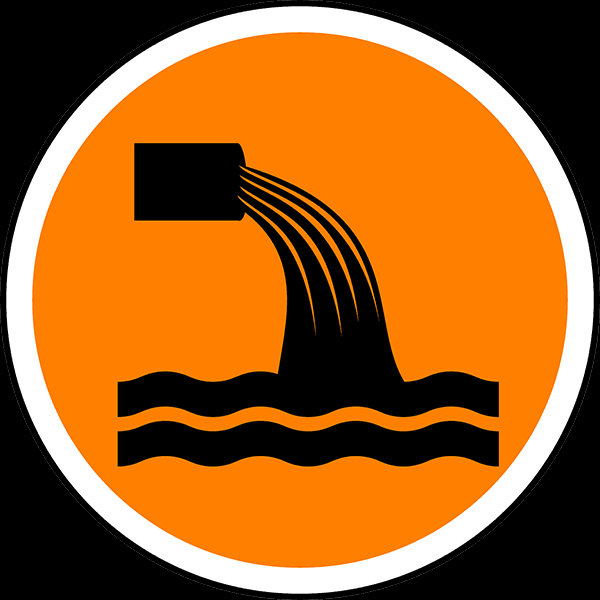Getting My Reclaim Waste To Work
Getting My Reclaim Waste To Work
Blog Article
How Reclaim Waste can Save You Time, Stress, and Money.
Table of ContentsSome Ideas on Reclaim Waste You Should KnowThe Ultimate Guide To Reclaim WasteThe Reclaim Waste DiariesSome Ideas on Reclaim Waste You Need To KnowThe Only Guide for Reclaim Waste
Domestic sewer waste refers to the waste and products from a household septic storage tank. The proper administration and disposal of residential sewer waste need fluid waste to be moved to a sewage treatment plant where the correct approaches and devices are used to detoxify and dispose of waste.
Business waste frequently consists of prospective threats, such as combustible products or a mixture of liquid and strong waste products, and requires an advanced and thorough disposal procedure. The disposal of industrial waste generally includes the filtration of waste before transportation to ensure secure and proper disposal. Industrial waste is developed from results and overflow of commercial procedures and production.
This type of waste can not make use of the exact same sewer administration transport or procedures as septic or business liquids. The hazardous waste management process needs the assessment and testing of liquid waste prior to it goes through the disposal process (liquid waste removal melbourne). Overflow waste is the liquid waste that originates from drainage and excess stormwater in very booming areas or cities
Runoff waste can cause contamination and flooding otherwise taken care of correctly. Discover more about drain cleaning and waste management. Guaranteeing proper waste administration can protect against calamities and reduce environmental damage. Both people in property setups and professionals in business or manufacturing markets can take advantage of comprehending the processes and laws of fluid waste administration.
What Does Reclaim Waste Do?
Call PROS Services today to find out about our waste administration and disposal services and the correct ways to look after the liquid waste you produce.
(https://www.awwwards.com/reclaimwaste1/)Do you recognize what occurs to your water when you end, flush the commode or drain pipes the cleaning machine? No? Well, it's worth understanding. This supposed 'wastewater' is not only a crucial resource but, after treatment, will be launched to our land, waterways or the sea. Utilized water from bathrooms, showers, bathrooms, kitchen area sinks, laundries and industrial processes is called wastewater.

water made use of to cool down machinery or tidy plant and devices). Stormwater, a type of wastewater, is overflow that streams from farming and city locations such as roofing systems, parks, gardens, roads, paths and gutters into stormwater drains, after rain. Stormwater moves without treatment straight to local creeks or rivers, eventually getting to the sea.
Our Reclaim Waste Statements
In Queensland, many wastewater is dealt with at sewage therapy plants. Wastewater is moved from residential or industrial websites via a system of sewage systems and pump terminals, known as sewage reticulation, to a sewer therapy plant.
The Division of Natural Resources suggests city governments concerning managing, operating and keeping sewage systems and treatment plants. In unsewered areas, neighborhood federal governments might need owners to mount individual or home sewage treatment systems to treat residential wastewater from commodes, cooking areas, restrooms and laundries. The Department of Natural Resources authorises making use of house systems when they are verified to be reliable.
In some brand-new class, therapy of some stormwater to remove litter, sand and gravel has actually started using gross contaminant catches. Wastewater therapy takes place in 4 phases: Removes strong matter.
Wastewater after that streams check these guys out into big storage tanks where solids settle and are removed as sludge. Oil and residue are skimmed from the surface area. Uses little living organisms referred to as micro-organisms to break down and remove staying dissolved wastes and great bits. Micro-organisms and wastes are integrated in the sludge. Gets rid of nitrogen and phosphorus nutrients that can trigger algal blossoms in our waterways and endanger aquatic life.
Facts About Reclaim Waste Uncovered
Nutrient elimination is not offered at all sewage therapy plants due to the fact that it calls for costly specialized tools. Clear fluid effluent generated after therapy might still contain disease-causing micro-organisms - liquid waste disposal.

This usually implies wastewater has actually to be dealt with or impurities gotten rid of before it can be released to waterways. Most wastewater flows into the sewerage system. Under the Act, neighborhood federal governments administer approvals and permits for environmentally relevant activities (ERAs) entailing wastewater launches that may have a regional influence. The division carries out approvals and licences to ERAs entailing wastewater launches that may have a regional or statewide impact.
How Reclaim Waste can Save You Time, Stress, and Money.
Surveillance offers factual information about water top quality and can confirm that permit conditions are being met. The information obtained through tracking provides the basis for making water quality choices.
Report this page